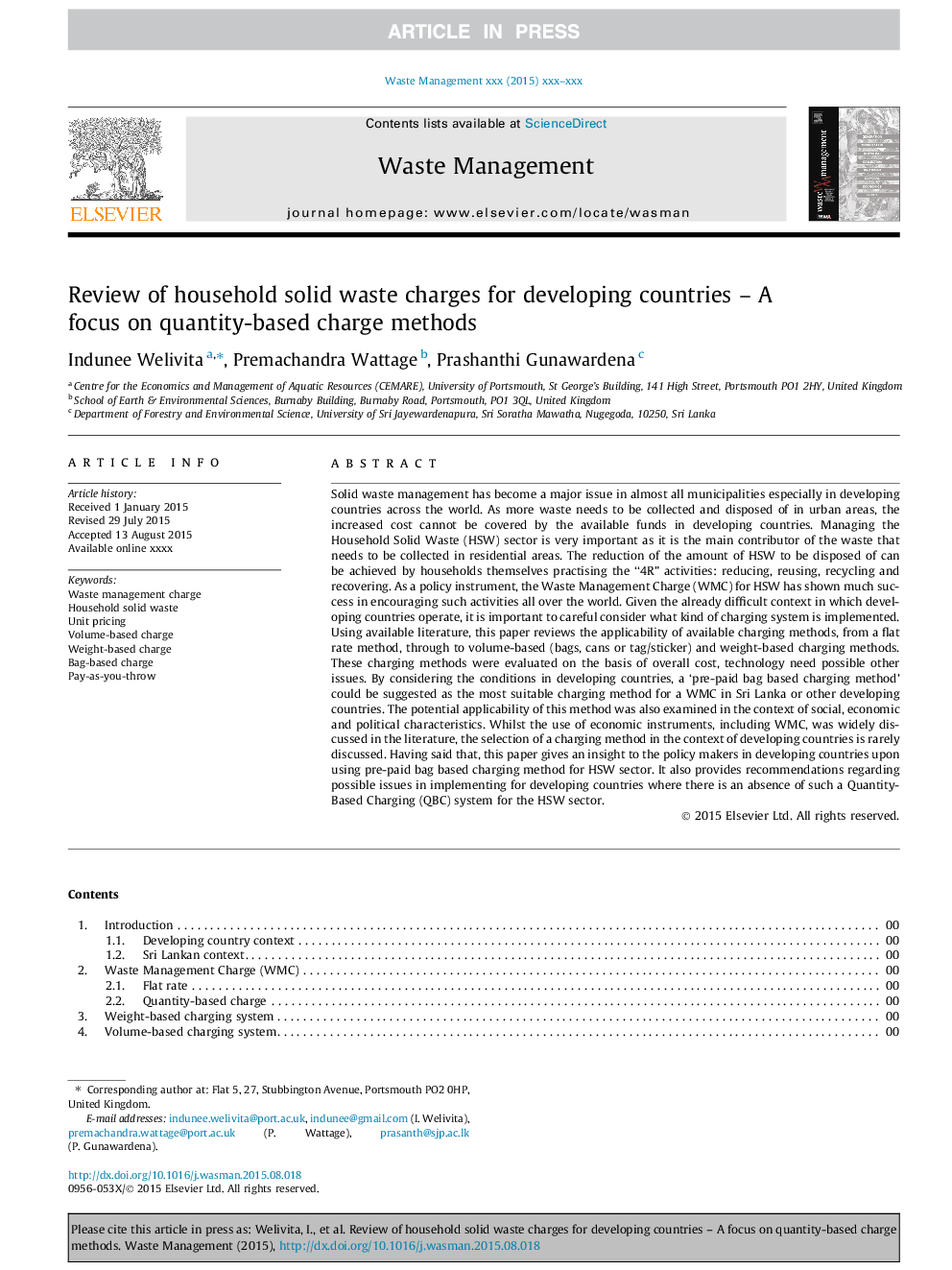| کد مقاله | کد نشریه | سال انتشار | مقاله انگلیسی | نسخه تمام متن |
|---|---|---|---|---|
| 6354574 | 1622639 | 2015 | 9 صفحه PDF | دانلود رایگان |
عنوان انگلیسی مقاله ISI
Review of household solid waste charges for developing countries - A focus on quantity-based charge methods
ترجمه فارسی عنوان
بررسی میزان اتهام زباله های خانگی خانواده های در حال توسعه - تمرکز بر روش های اتهامات مبتنی بر کمیت
دانلود مقاله + سفارش ترجمه
دانلود مقاله ISI انگلیسی
رایگان برای ایرانیان
کلمات کلیدی
اتهام مدیریت زباله، زباله های خانگی خانگی، قیمت گذاری واحد، شارژ مبتنی بر حجم شارژ مبتنی بر وزن، شارژ مبتنی بر کیسه، پرداخت به عنوان شما پرتاب،
موضوعات مرتبط
مهندسی و علوم پایه
علوم زمین و سیارات
مهندسی ژئوتکنیک و زمین شناسی مهندسی
چکیده انگلیسی
Solid waste management has become a major issue in almost all municipalities especially in developing countries across the world. As more waste needs to be collected and disposed of in urban areas, the increased cost cannot be covered by the available funds in developing countries. Managing the Household Solid Waste (HSW) sector is very important as it is the main contributor of the waste that needs to be collected in residential areas. The reduction of the amount of HSW to be disposed of can be achieved by households themselves practising the “4R” activities: reducing, reusing, recycling and recovering. As a policy instrument, the Waste Management Charge (WMC) for HSW has shown much success in encouraging such activities all over the world. Given the already difficult context in which developing countries operate, it is important to careful consider what kind of charging system is implemented. Using available literature, this paper reviews the applicability of available charging methods, from a flat rate method, through to volume-based (bags, cans or tag/sticker) and weight-based charging methods. These charging methods were evaluated on the basis of overall cost, technology need possible other issues. By considering the conditions in developing countries, a 'pre-paid bag based charging method' could be suggested as the most suitable charging method for a WMC in Sri Lanka or other developing countries. The potential applicability of this method was also examined in the context of social, economic and political characteristics. Whilst the use of economic instruments, including WMC, was widely discussed in the literature, the selection of a charging method in the context of developing countries is rarely discussed. Having said that, this paper gives an insight to the policy makers in developing countries upon using pre-paid bag based charging method for HSW sector. It also provides recommendations regarding possible issues in implementing for developing countries where there is an absence of such a Quantity-Based Charging (QBC) system for the HSW sector.
ناشر
Database: Elsevier - ScienceDirect (ساینس دایرکت)
Journal: Waste Management - Volume 46, December 2015, Pages 637-645
Journal: Waste Management - Volume 46, December 2015, Pages 637-645
نویسندگان
Indunee Welivita, Premachandra Wattage, Prasanthi Gunawardena,
